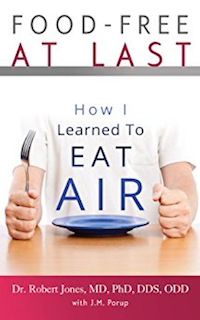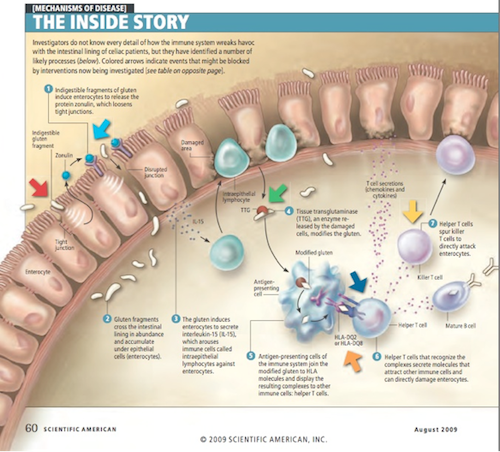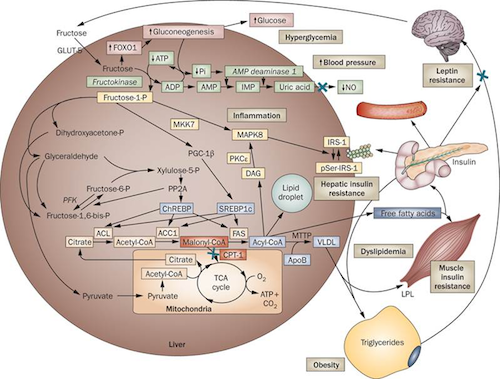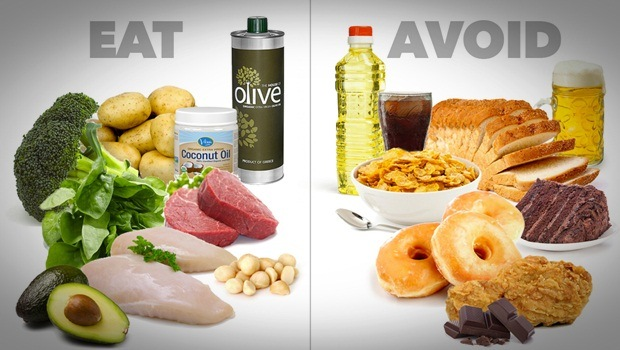Is gluten bad for your health?
Recently it appeared on the news that going gluten-free in your diet increases your risk of getting type 2 Diabetes. Although, that doesn’t implicate a cause-effect relationship it is clear that just avoiding gluten will not convert your diet as healthier one.
So, with so many news appearing on the media people are wondering what the heck should I eat? Only air?

The short answer it would be: “eat like you ancestors”. From the evolutionary point of view our diets have been changing a lot during the last 10.000 years and too little time for our genes to adapt to this new environment. You think we’ve been eating donuts and pizzas for how long?
So let’s go back to the period where our genes are more comfortable and see how we can improve our diet avoiding some of the bad things.

Cereals
Not only gluten but cereals seem to be problematic. Cereals contain the so called “anti-nutrients”, such as wheat gluten and wheat lectin that in humans can elicit dysfunction and disease.
Fasano and its colleagues have shown that gliadin (protein present in gluten) causes the release of zonulin, a protein that compromises the integrity of our your cells junctions in your gut, hence causing the “leaky gut syndrome”. This could happen even in non-celiac people.

Diagnosing the celiac disease it’s a hard thing to do, you could react negatively to gluten and still not knowing because of the lack of biomarkers. This has been highlighted by Dr. Datis Kharrazian in his book “Why do I still have thyroid symptoms?”. Currently we are only looking for antibodies for one type of isotope of gliadin (alfa), but there are others: beta, omega & delta. Also, gliadin could be decomposed in glutenin, wheat germ agglutinin (WGA) and deamidated gliadin.
This means we are not looking for all the gluten sensitivities, hence people suffering from an autoimmune disease like Hashimoto’s, could be well caused by gliadin.
Going gluten-free could be beneficial, but you should try to avoid other cereals as well, they suffer for similar problems, and eating too much corn or rice could rise your glucose levels to the sky.
Sugar a.k.a. Fructose
The real problem with sugar it’s Fructose. Regular sugar it’s composed by Glucose & Fructose, and even some alternatives have more percentage of Fructose compared to Sacarose (e.g. High-Fructose Corn Syrup)
To put in context, you could treat Fructose literally like a poison. While Glucose is the fuel of your cells, Fructose can only metabolized in the liver and it follows the same pathway as Alcohol does. Fructose doesn’t suppress ghrelin (the “hunger hormone”), and doesn’t stimulate insulin/leptin, hence you keep eating more. In the liver Fructose converts into fat, and could rise your VLDL levels as well as your uric acid producing a higher risk of hypertension.

You don’t need to understand the whole picture above, but that’s for giving you a rough idea of the complications of diets high in Fructose.
You may be wondering should I eat fruits? Yes. Fruits are good because of its contents of fiber. But beware of fruit juices that lack all the fiber and just have sugars on it. Skip juices and eat an apple instead.
Dairy
Dairy also has been present in our diets too little if you compare it with our evolutionary history. The main problems from milk are lactose and casein. Casein (type A1) is cleaved to form a powerful inflammatory opiate called Casomorphin. Now you’ll get why cheese is so addictive (it has more casein on it).

Also, there is evidence that suggests that dairy-sourced hormones, not being subject to any innate feedback inhibition, may be the source of the androgenic and mitogenic progestins that drive acne, prostate and breast cancer. Dairy contains dihydrotestosterone (DHT) precursors, including 5a-pregnanedione (5α-P) and 5a-androstanedione. The 5-alpha-reduced compound 5α-P present in milk is a direct precursor of dihydrotestosterone and may act through that pathway in prostate cancer, but 5α-P has also recently been shown to be capable of inducing estrogen receptors in breast cancer cells, upregulating cancer cells’ sensitivity to estrogen.
Conclusions
As a conclusion, don’t take the word of what I exposed in this post. I may be wrong and Nutrition itself it’s a complicated field. The best advice I could give you is that you should at least give it a try and change your diet for at least a month and then evaluate how you feel.

This is more like an opinion, but I’m sure if you follow this diet you will feel better, more energized, more motivated, and with a leaner body. Joe & Mac will approve your new lifestyle! Ready to start?

Additional info
Articles
- Cahill, G. F., & Veech, R. L. (2003). Ketoacids? Good medicine? Trans Am Clin Climatol Assoc, 114, 149–163.
- Cordain, L., Eaton, S. B., Sebastian, A., Mann, N., Lindeberg, S., Watkins, B. A., … & Brand-Miller, J. (2005). Origins and evolution of the Western diet: health implications for the 21st century. The American journal of clinical nutrition, 81(2), 341-354.
- Danby, W. (2009). Acne, dairy and cancer. Dermato-Endocrinology, 1(1), 12–16.
- DePunder, K., & Pruimboom, L. (2013). The Dietary Intake of Wheat and other Cereal Grains and Their Role in Inflammation. Nutrients, 5(3), 771–787.
- Fasano, A. (2011). Zonulin and Its Regulation of Intestinal Barrier Function: The Biological Door to Inflammation, Autoimmunity, and Cancer. Physiological Reviews, 91(1), 151–175.
- Gower, B. A., & Goss, A. M. (2015). A Lower-Carbohydrate, Higher-Fat Diet Reduces Abdominal and Intermuscular Fat and Increases Insulin Sensitivity in Adults at Risk of Type 2 Diabetes. Journal of Nutrition, 145(1), 177S–183S.
- Lionetti, E., Leonardi, S., Franzonello, C., Mancardi, M., Ruggieri, M., & Catassi, C. (2015). Gluten Psychosis: Confirmation of a New Clinical Entity. Nutrients, 7(7), 5532–5539.
- Lyssiotis, C. A., & Cantley, L. C. (2013). Metabolic syndrome: F stands for fructose and fat. Nature, 502(7470), 181–182
- Ma, R., Karthik, G. M., Lovrot, J., Haglund, F., Rosin, G., Katchy, A., … & Linder, S. (2017). Estrogen Receptor beta as a Therapeutic Target in Breast Cancer Stem Cells. Journal of the National Cancer Institute, 109(3).
- Kraft, B. D., & Westman, E. C. (2009). Schizophrenia, gluten, and low-carbohydrate, ketogenic diets: a case report and review of the literature. Nutrition & Metabolism, 6(1), 10.
Books
- The Paleo Solution: The Original Human Diet
- Wheat Belly: Lose the Wheat, Lose the Weight, and Find Your Path Back to Health
- Why Do I Still Have Thyroid Symptoms? When My Lab Tests Are Normal
Others